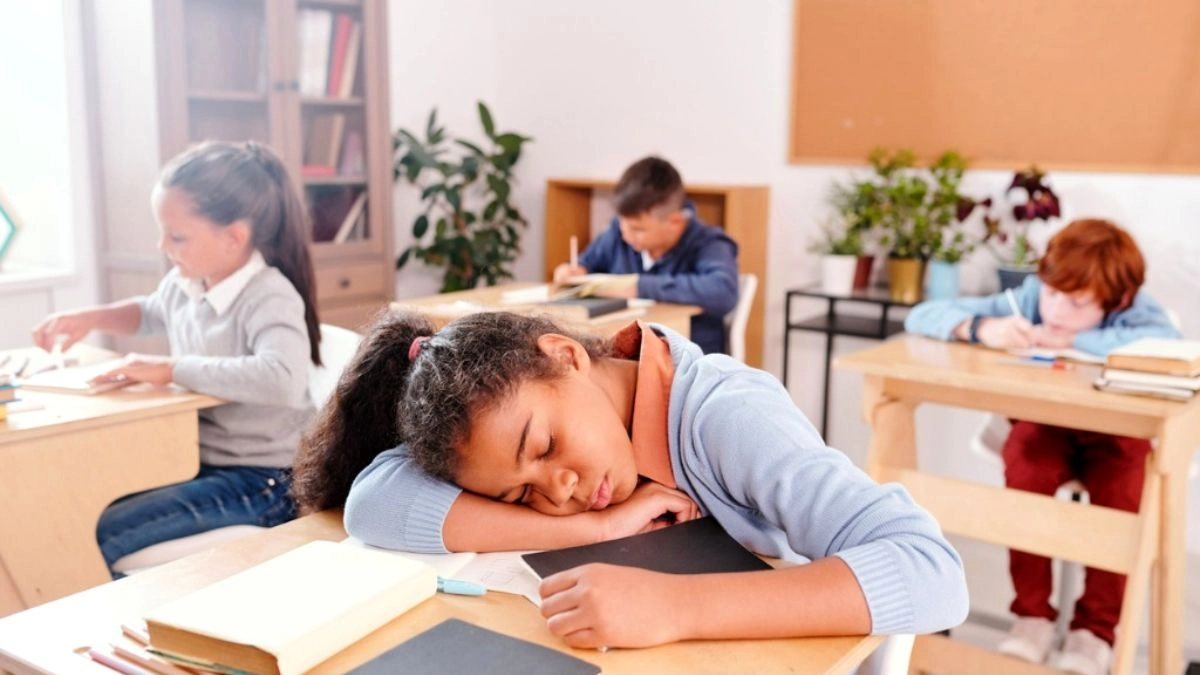Lifestyle
Unstable Weather Changes Affecting School-going Children

The increase in the number of school-going children falling sick in the UAE, as reported by pediatricians, is concerning, especially if it is linked to changes in weather conditions. To prevent their children from getting sick, parents must take the necessary steps.
Changing Weather in UAE Triggers Increase in Viral Infections Among Children
To stop the spread of infections, especially during times of weather changes, it is crucial for everyone in the community to cooperate. This entails keeping up with vaccines, maintaining appropriate cleanliness practices, getting timely medical assistance when necessary, and paying attention to educational institutions and healthcare professionals’ advice.

What do pediatricians say about Viral illness among children?
Dr. Rim Al Choughri, a pediatric specialist at Burjeel Hospital in Abu Dhabi, gave important information that is in line with other medical professionals’ observations that unexpected changes in the weather might increase the occurrence of viral illnesses, particularly in youngsters. Children’s immune systems may be harmed by viral infections brought on by the change from cold to hot weather.
The effect of Covid-19 limits on children’s immune systems is another point made by Dr. Al Choughri. The Covid-19 regimens protected children from environmental pathogens that may have boosted their immune systems. But this lack of exposure can also make the immune system less able to fight off viral infections.
Several medical specialists have also made the observation that damp and cold weather might weaken the body’s natural immune systems, especially the mucosal barrier of the respiratory system, and increase the odds of many viruses surviving. This can make children more vulnerable to respiratory infections.
Rhinovirus, influenza, and respiratory syncytial viruses are currently on the rise, which is leading to an increase in the number of children getting sick, says Dr. Swathi Eluri, a specialist pediatrician at Aster Clinic Abu Hail.
Children are particularly vulnerable because of the changing environment, children’s lower immune systems compared to adults, their close contact with other kids in classrooms, and inadequate ventilation.
These viral infections can cause a variety of symptoms, such as the common cold, sore throat, headache, myalgia, fever, and gastrointestinal problems like vomiting and loose stools. When they are severe, these infections can cause pneumonia and bronchitis. In children with known allergies, symptoms could last a week or more.
Parents must follow the strict advice of doctors
Dr. Jobby Jacob, a specialist pediatrician at Medeor Hospital in Dubai, advises parents to keep sick children at home to help them recover more quickly and prevent the infection from spreading to other kids. These symptoms include fever, vomiting or diarrhea, pink eyes, persistent coughs, and rashes on the hands, feet, and mouth.
In the event of fever, vomiting, or diarrhea, Dr. Jacob advises delaying returning to school for 24 hours while the symptoms last. It is advised to hold off on going back to school if you have rashes or pink eye until the signs go away or are fully gone.
Dr. Kedar Patnekar, Specialist Pediatrician and Branch Manager with Prime Medical Centre Burjuman Branch, emphasizes the importance of getting children vaccinated for the flu, particularly during this season.
Dr. Kedar Patnekar recommends that parents get their children vaccinated for flu while they are asymptomatic to protect them from recurrent infections.
He counsels parents to go to the doctor as soon as symptoms appear rather than waiting for them to get worse.
In order to boost kids’ immunity and lessen the likelihood of illnesses, he also suggests adding vitamin C-rich foods to their meals. Dr. Patnekar also advises against letting kids self-medicate because it can be risky.
Fluctuations in UAE Weather
Over the year, Dubai’s weather can change dramatically and be rather unpredictable. The normal temperature during the winter (December to February) is between 15 and 25°C (59 and 77°F), with sporadic showers. When combined with high humidity, the midsummer temperature of 40–45°C (104–113°F) can feel even hotter.
This temperature can reach these levels from June to August. As a result of these dramatic changes in seasons, weather patterns and temperatures can also shift quickly.
People’s health can be impacted by these changes, especially young children who may be more vulnerable to disease during these times of climate change.
The UAE’s current weather is fair to partly cloudy, with occasional low clouds over the eastern coast and an increase in temperatures, according to the National Centre of Meteorology. The country’s temperature might increase to 36°C, with Abu Dhabi and Dubai also anticipating 34°C highs.
Yet, in hilly areas, the temperature may fall as low as 9 °C, while it may reach 18 °C in Abu Dhabi and Dubai. In both locations, the relative humidity will range from 20 to 75 percent. The sea conditions are expected to be slight in the Arabian Gulf and in the Oman sea.